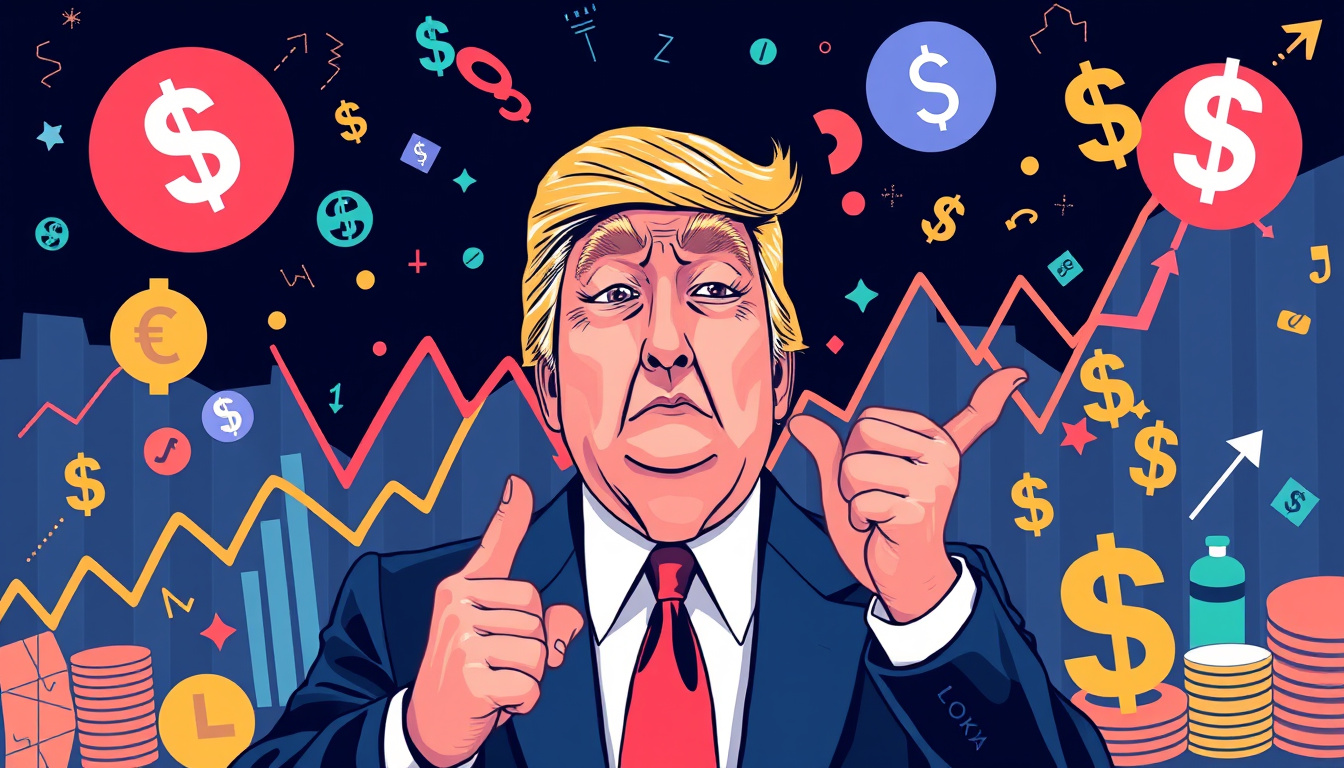Table of Contents
In an era of fluctuating global economies and evolving geopolitical landscapes, understanding the intricate connections between the bond market and U.S.
foreign policy has never been more critical.
The dynamics of the U.S.
Ten-Year Treasury yield serve as a critical barometer for economic strategy and trade relations, directly influencing decisions that ripple across international borders.
In a recent episode of 'The Bitcoin Policy Hour,' experts from the Bitcoin Policy Institute, including Matthew Pines, Zack Shapiro, and Zack Cohen, explored how these financial indicators shape not only U.S.
fiscal policies but also the country's political outreach and global trade strategies.
As the nation grapples with a rising debt burden and the need to rethink its industrial policies, particularly with the concept of onshoring gaining traction, understanding the implications of the bond market is essential.
This article delves into the profound impact of the bond market on U.S.
foreign policy and the future trends in monetary policy, while also examining the potential role of Bitcoin in this evolving landscape.
Crypto News, Articles and Reports

Key Takeaways
- The U.S. bond market, particularly the Ten-Year Treasury yield, directly influences foreign policy decisions.
- Growing fiscal constraints necessitate a deeper understanding of bond market dynamics for future economic strategies.
- Bitcoin's potential role in U.S. monetary policy is becoming more significant amid rising national debt and changing economic landscapes.
The Impact of the Bond Market on U.S. Foreign Policy
In recent years, the intersection of finance and foreign policy has garnered significant attention, with the bond market emerging as a pivotal player in shaping the United States' international stance.
The article titled 'Why The Bond Market Matters More Than Ever For U.S.
Foreign Policy' delves into how fluctuations in the U.S.
Ten-Year Treasury yield can profoundly influence U.S.
interest payments, trade policy, and the broader economic landscape.
Experts from the Bitcoin Policy Institute, including Matthew Pines, Zack Shapiro, and Zack Cohen, elucidate the implications of bond market dynamics, especially as the nation grapples with a mounting debt burden and fiscal limitations.
Understanding the yield curve is not merely an academic exercise; it is essential for policymakers aiming to navigate the complex realities of U.S.
monetary policy in the future.
Additionally, the conversation touches on the potential of Bitcoin to reshape fiscal strategies within this framework, emphasizing the need for a strategic approach to foreign policy that is informed by economic realities.
As the conversation unfolds in the first episode of 'The Bitcoin Policy Hour,' it becomes increasingly clear that the bond market is not just a financial mechanism, but a central element in the U.S.'s ability to maintain its economic sovereignty and respond to global challenges.
Future Trends in Monetary Policy and the Role of Bitcoin
As we look ahead to the future of monetary policy, it is imperative to recognize the potential role of Bitcoin alongside traditional financial instruments like bonds.
The stability of the bond market—and specifically the U.S.
Ten-Year Treasury yield—has been a critical focus for policymakers.
However, with rising interest rates and inflationary pressures, the discussion is shifting to how alternative currencies like Bitcoin might integrate into this existing framework.
Advocates suggest that Bitcoin could act as a hedge against inflation, offering a decentralized asset that operates independently of government control.
This transition requires a deep understanding of how Bitcoin interacts with established financial markets, including the yield curve dynamics that underpin the bond market.
By leveraging insights from experts at the Bitcoin Policy Institute, it's clear that navigating these changes will necessitate a holistic understanding of both conventional and digital assets.
Policymakers must consider the implications of Bitcoin not just as a speculative investment but as a strategic tool that could potentially redefine U.S.
economic interactions on the global stage.
By Wolfy Wealth - Empowering crypto investors since 2016
[highlight=transparent]⚡️Exclusive research[/highlight]
[highlight=transparent] 📈 Early signals[/highlight]
[highlight=transparent] 📬 Weekly reports[/highlight]
[highlight=transparent] Just what you need to win in crypto. [/highlight][highlight=transparent]Click [/highlight]Here
Disclosure: Authors may be crypto investors mentioned in this newsletter. Wolfy Wealth Crypto newsletter, does not represent an offer to trade securities or other financial instruments. Our analyses, information and investment strategies are for informational purposes only, in order to spread knowledge about the crypto market. Any investments in variable income may cause partial or total loss of the capital used. Therefore, the recipient of this newsletter should always develop their own analyses and investment strategies. In addition, any investment decisions should be based on the investor's risk profile.








